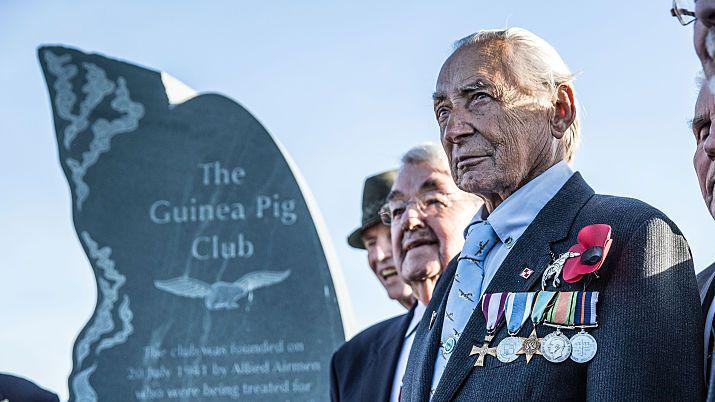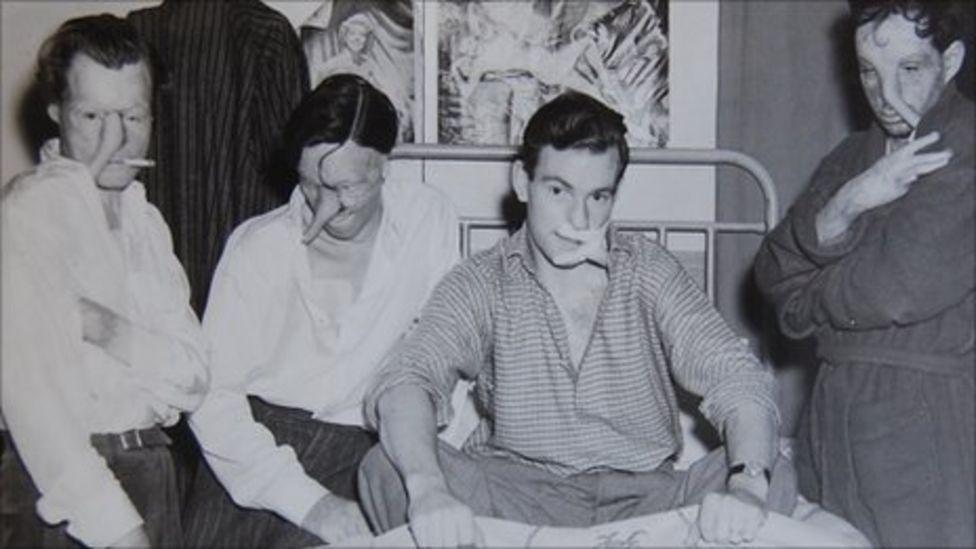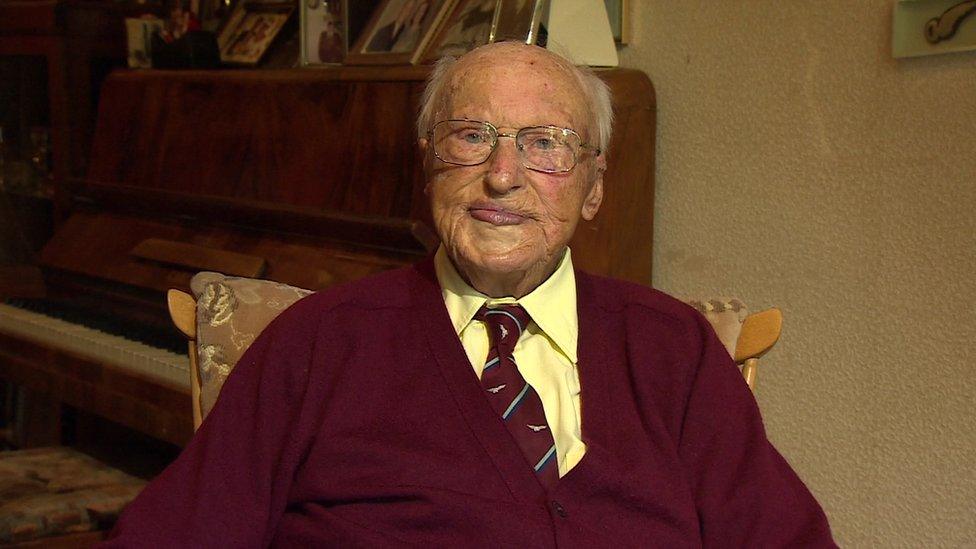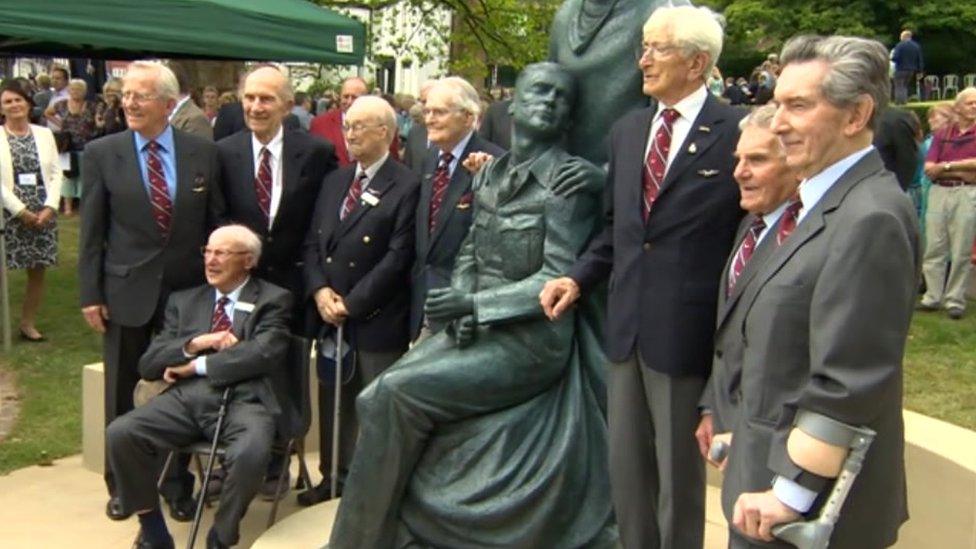Last East Grinstead 'Guinea Pig' veteran dies

World War Two veteran Jan Stangryciuk (R) lived to 101
At a glance
Jan Stangryciuk died on 22 October, aged 101
The "Guinea Pig Club" was a group of World War Two pilots who underwent pioneering plastic surgery for burns
The club were treated in East Grinstead, West Sussex, by surgeon Sir Archibald McIndoe
- Published
The last member of a group of World War Two veterans who underwent pioneering surgery has died.
Jan Stangryciuk, 101, died on 22 October after a short illness, the East Grinstead Museum said.
Known as The Guinea Pig Club, the group of pilots were treated with experimental plastic surgery for burns at Queen Victoria Hospital (QVH) in East Grinstead, West Sussex.
Mr Stangryciuk was quoted as saying the "friendship I made with the Guinea Pigs will live with me for the rest of my days".
East Grinstead became known as "the town that did not stare" after hundreds of severely-burned air crew were treated at the local hospital.
Mr Stangryciuk, who was born in eastern Poland in 1922, was one of them.
He had suffered burns to his face, scalp and hands after the Wellington Bomber he was flying malfunctioned and crash-landed in November 1942.
He was transferred to the QVH in January 1943 where he underwent 10 operations at the hands of plastic surgeon Sir Archibald McIndoe.
Bob Marchant, secretary of the Guinea Pig Club and former surgical technician at QVH, said Mr Stangryciuk's death was "the end of an era" for the club, which celebrated "82 years of friendship between 649 members".

The Guinea Pig Club was only intended to last until the end of the war
Mr Marchant described Mr Stangryciuk as "a real character" who was "always telling jokes".
The group began as a drinking club for airmen being treated in Sussex by McIndoe in 1941, and grew to 649 members by the end of the war.
The club and its members became known as the guinea pigs because of the experimental surgery patients underwent.
The RAF Benevolent Fund described the group as "challenging the perception that disabilities were life-limiting" and said the plastic surgery techniques used on the guinea pigs "gave hope to young men with life-changing disfigurements".
A statue to Sir Archibald McIndoe was unveiled by the Princess Royal in East Grinstead in 2014.
The surgical breakthroughs developed at QVH during the war earned it a reputation as one of the leading plastic surgery and burns treatment centres in the country.
Follow BBC South East on Facebook, external, on X, external, and on Instagram, external. Send your story ideas to southeasttoday@bbc.co.uk, external.
Related topics
You might be interested in
- Published2 November 2016

- Published2 June 2011
- Published9 June 2014
- Published17 May 2016
